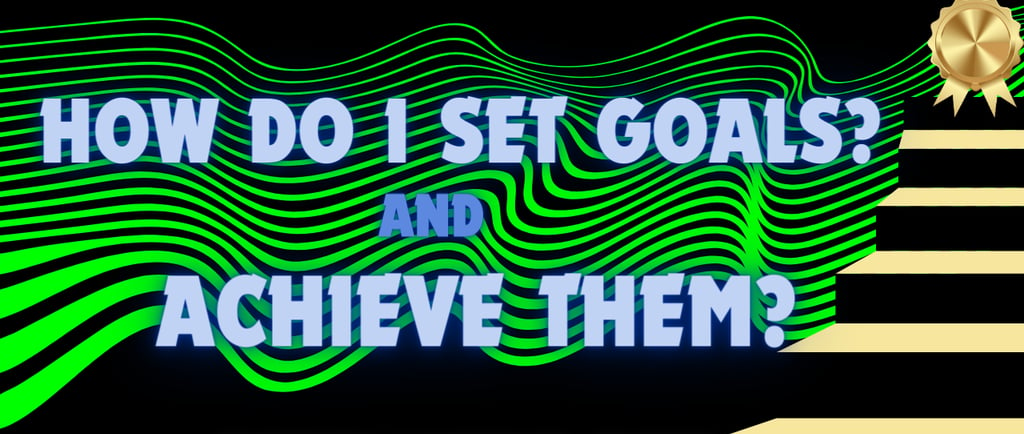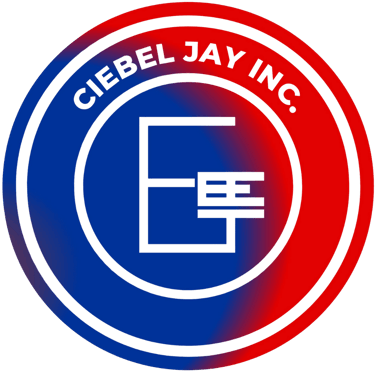How to set SMART goals & achieve them
Read this blog issue on how to define goals, determine your own success and to feel accomplished in your vocation, career or work. #settinggoals #purpose #intention #duty #service #business #entrepreneur #aspiration #priorities #expectations
TIPS
Drew Sybil, Ejiro Ojirevwe
11/19/20235 min read


How do you define goals based on SMART steps?
In reality, everything has a cost: it could be time, energy or money. Start with the hurdle. To fight delusion is to realize what is in your way, and finding new ways to meaningfully solve this problem. This is why a lot of artists start with fundraisers before they start recording their first project, because they need that resource supply to find peace during production.
The next step is to define your non-negotiable outcomes. These are the things you will not compromise. This eliminates the need for distraction. Even if a shiny offer comes in but it isn't what you want, you'll be able to easily identify that as a distraction and keep moving on, simply because it is not what you want. This is like a pros and cons list except you will not compromise your non-negotiable's, because it includes things related to your security and stability.
The next step is define how long you're willing to take to complete the mission; how much energy and time as well. You must be able to see the points of your journey, the beginning, the middle and the end. If you don't know where you're going or how far you've come, around the half way mark will feel like no man's land: like you're in the middle of nowhere, panicked, trying to get out. But if you can track your progress based on a timeline or steps towards progress (like a loading bar), then you'll know where you're at, and whether there's time to rest or if you need to double your pace, since based on your progress, you'll have a good guess as what's next.
"Control [your] outcome"
For artists especially it's important to choose outcomes as successors that are in your control, based on your audience for example, our true trackers of artist influence. So accumulating views over time, organic or otherwise, fan turnout at concerts, and the rate of your ticket sales. These should be unbiased, uncontrollable numbers that allow you to see your benefit on others' lives. This is important to track your influence and the outcome (its impact). So in sales they call this the reviews section of the landing page, yet we know that you can pay for reviews. It's better for people to authentically give feedback about your work, instead of people pleasing because the true impact won't go away. It's a memory that will stay with them forever.
What are some goals artists face early that need to be reconsidered?
Certain goals we encourage artists to reconsider are all related to immediacy. It's better to give yourself more time than you think especially when the goal is based on others, because you have to give people time to come to terms with what you're giving them. Let's say they wanted a certain message to be transmitted, we might actually try various methods to do so, but one really stands out. So they'll meet their goal after all, but it either took more time or effort than they expected.
Why do you think misconceptions like this happen?
Because music is a competitive space, so I think it's easy for people to write about their accolades without crediting all the work that goes into that accomplishment. And it's easier for others to believe that they did it all themselves without investigating all the work, effort and credibility that went into another's person's success.
It's just like being inexperienced in any career, you might be subconsciously competing with others at first that you see as successful, instead of wondering how you yourself are going to reach success. Like how long realistically would it take for you to get to that level considering all the factors that matter? That's where the comparison should go with music and the arts; is into the research.
But often times I see artists put that credible shame on themselves as if they haven't done the work to deserve the success or as if them not knowing proves their shame accurate meaning they shouldn't be in the space. Sometimes the anxiety of fitting in is detrimental to us because we are actually change makers or innovators in the space.
And I find innovators solve all the hard problems first, which can feel thrown at them all at once, but in hindsight they realize these problems were the ones no one was willing to solve. As an innovative disruptor in the space, you end up make your name by changing outcomes no one else could change. And so you did it during the first step of your big journey, so that really solidifies part of mission clearly.
I think that's another way artists don't give themselves credit because as an executive they changed the dynamic of their industry but maybe they thought that influence should come directly from the music. But life is an art so it still has an effect. You're more of a great artist than you thought. You're like Van Gogh in hindsight. Your life is art.
How would you summarize goal making for an artist?
Rework SMART goals: So make them specific, measurable, relevant and time-bound, but make them achievable for your personal sense of accomplishment. Choose goals that will make you happy to achieve them, especially on your own. Get clear with the vision and purpose for each goal. Allow your innate qualities and skills to form from progressing the goal.
So if an intention was to be more creative, celebrate every step of being creative. Or if your goal is to find logical solutions, stick to your planned journey of the outcome, what it looks like to achieve it, what it feels like to be in the middle of it, and when you're on the brink of insight. And then celebrate completing these small steps at first, so when you're close to completing the bigger goal, you either feel motivated or well rested, like you appreciate all your hard work so far, but now you know this is last step to completing a massive goal.
And then I would say record every step's progress, even if you don't publish it yet, just so that you can always tell which part of the journey you're on. It'll keep you in check, stop distractions and keep you from being delusion. Because most people give up right before their breakthrough. But if you have measurable step-wise goals, and you celebrate achieving all the smaller steps, you'll feel like anything is possible compared to the larger goals, because you aren't pushing yourself to burnout, you're just happy you get to try, sort of expected to fail more than you did, and happy you get to see the real reason why this idea was always burning itself inside your head. In that way you feel achieved regardless of accolades, public recognition or external validation.
How do you find success in long-term goals?
Specifically for long-term goals, break them into steps: shorter readily achievable goals. Completing the first step leads to the next and the next. But it isn't so overwhelming as charging at a humungous goal that you've never achieved before. When you sequence the steps in order of achievement and one depends on the other, you can see how success can be made over time. This actually plots your journey more clearly based on time as you realize how long it takes you to complete each step of the larger goal. It's a more accurate way of describing a timeline rather than having a huge goal but never getting started, or failing to be productive because you don't have enough steps to keep you motivated as you go.
